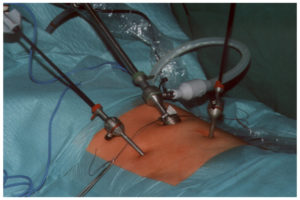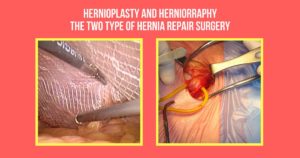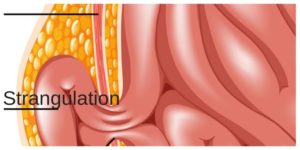What is an Inguinal Hernia?
Inguinal Hernia refers to the protrusion of the intestine and other abdominal tissues through the weakness near the groin area. The hernia breach is exactly at the right or left inguinal canal. Sometimes there is a hernia on both the side of the abdomen.
An inguinal hernia is the most common hernia of all the hernia types present. Inguinal Hernia constitutes 70% of all the hernia types. In that 70%, almost all of an inguinal hernia happens in men. Dr Maran, the best Hernia Surgeon in Chennai who has done over 2000 Hernia surgery in Chennai, talks about Inguinal Hernia Surgery in the video attached.
General Symptoms of Inguinal Hernia
A feeling of heaviness in the groin area. More-so on the scrotum
Swelling of the scrotum
A bulge on the left or right or both sides of the abdomen near the groin.
Pain in the groin area
The pain can increase when coughing, or bending.
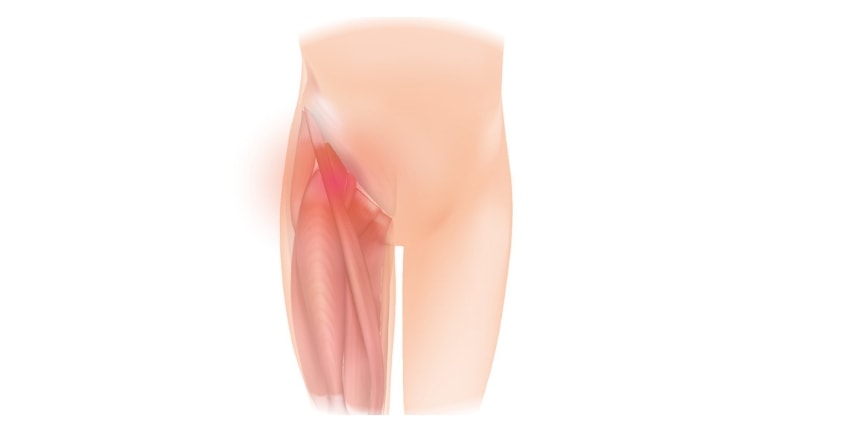
Inguinal Hernia in Men
Men are more affected by Inguinal Hernia than women. The data on Inguinal Hernia skews absolutely towards men. One estimate says that over 90% Inguinal Hernia cases reported are on men. So it is imperative that we are aware of the signs and symptoms of Hernia in males with particular reference to Inguinal Hernia here.
Inguinal Hernia Symptoms in Men
- The patient can feel a burning sensation or pain near the bulge. The patient might sometimes feel the pain in the entire groin area.
- Pain manifests sometimes in the scrotum region when the intestine is protruding into the scrotum.
- A general feeling of weakness in the groin area.
- The pain and the discomfort increase as the patient bend over or lifts any weight.
- If the patient has Constipation the pain might be more as they strain to pass the motion.
Visible Signs of Inguinal Hernia in Men
- A visible bulge on any one side of the pubic bone. Pubic bone is the frontal bone present in the pelvic region. In other words, the bone structure that is close to the male or female private part is the pubic bone.
- The bulge is pronounced when the patient is standing upright.
- Rarely there might be bulges on both the sides of the pubic bones.
- Sometimes the scrotum or the balls would display a swelling. This swelling is due to the fact that the protruding intestine has descended into the scrotal region.
- If the patient lies down flat, the bulge might either disappear because the hernia present slid inside or it can be pushed gently inside manually. This process of gently pushing the hernia inside is referred to as “reducing the hernia”. The patient should reduce the hernia present by themselves lying flat and should never seek help unless the hernia surgeon is examining.
Dr Maran, the Best Hernia Surgeon in Chennai on Signs and Symptoms of Inguinal Hernia in Men
Dr Maran the top hernia surgeon in Chennai who has done many hernia surgery in Chennai firmly says that if men show signs and symptoms of an inguinal hernia, they need to get examined by a hernia surgeon immediately. He says that though a Hernia surgery can be postponed in not so serious cases, the hernia only worsens over time. He emphasizes the need to take precautions if a hernia is present and if you are not going to go in for a hernia repair surgery immediately. Dr Maran, however, says that complicated hernia conditions like strangulation or incarcerated hernia are medical emergencies. Hence Inguinal Hernia repair surgery has to be done immediately for such medical emergencies.
Causes of Inguinal Hernia
An inguinal Hernia largely happens in men. The incidence is more than 90% in men than in women. While a male baby is born, the testes descend from the abdomen to the scrotum through a canal called inguinal canal. The inguinal canals are found on the base of both left and right abdomen. They facilitate the two testes to descend into the scrotal sac.
In the normal course, this inguinal canal closes after the two testicles have descended. But in some male babies, the inguinal canal does not close properly. At any time in life, the defective inguinal canal can sometimes allow fat and other abdominal tissues or intestine to protrude into the groin through this breach. So inguinal hernia develops in such men with the defective inguinal canal. This kind of an inguinal hernia is referred to as Indirect Inguinal Hernia.
Sometimes in both men and women as they age, the abdominal tissue near the inguinal canal can become weaker and as a result, they can become sagging or torn. In such cases too, the fat and other abdominal tissues or intestine can protrude. This kind of an inguinal hernia is referred to as Direct Inguinal Hernia. Women can get this type of an inguinal hernia albeit rarely. This is because the broad ligament tissues of the uterus present in women behind the abdominal wall prevent any weakening of the abdominal wall near the inguinal canal.
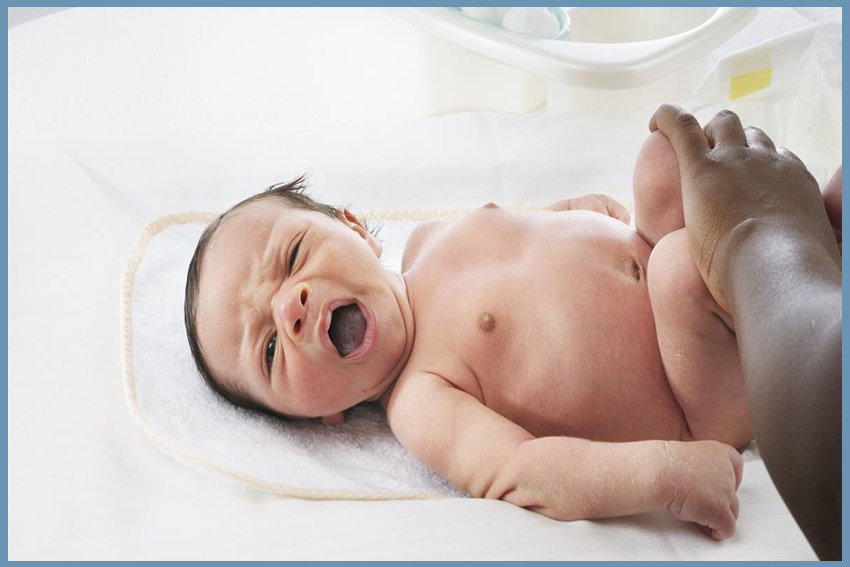
Factors that can Aggravate Inguinal Hernia
Obesity
Pregnancy
Straining during the bowel movement. Low fiber food can cause constipation and this can cause straining putting pressure on the hernia.
Straining during urinating (prostrate condition)
Lifting heavy weights as part of daily chores like a bucket full of water, LPG cylinder, children, etc.
Lifting heavy weights in the gym
Cycling long distances
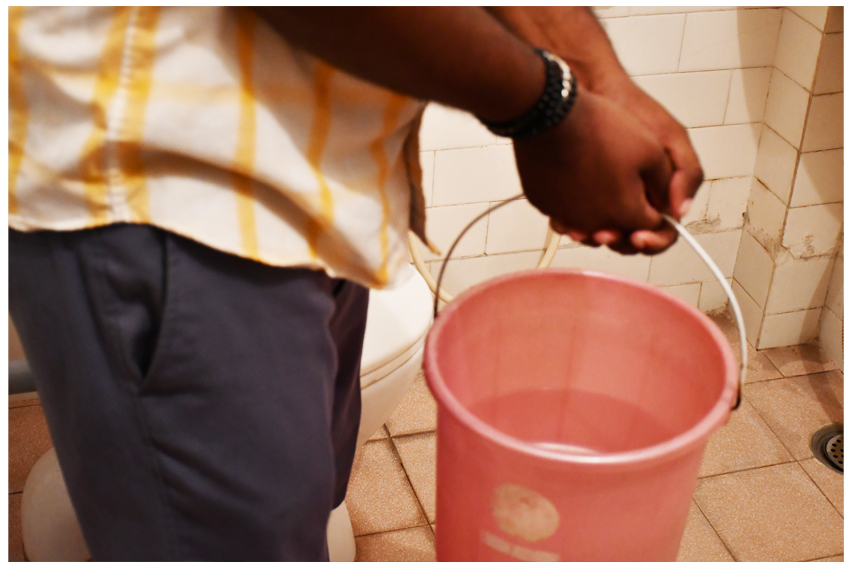
Risk Groups for Inguinal Hernia
Obese People
People who are suffering from Constipation for too long.
People who have prostrate
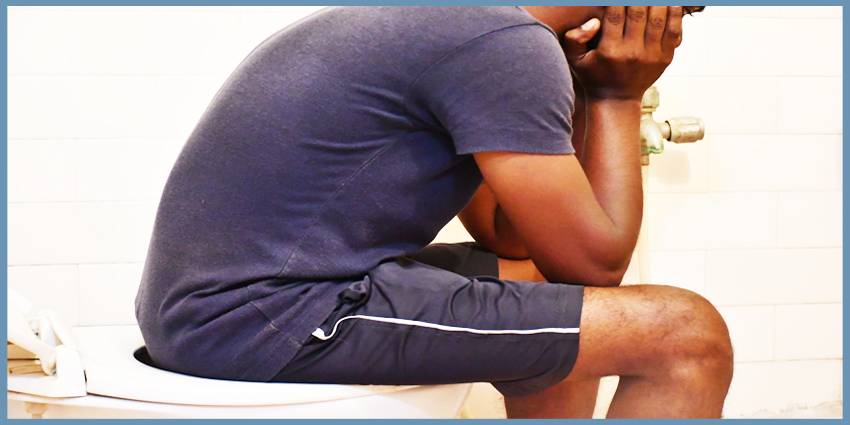
Diagnosis of Inguinal Hernia
A simple physical examination by an experienced gastroenterologist is sufficient to diagnose a hernia.
The bulge in the groin and the hernia is very much noticeable in most cases when the person stands and coughs. This is the standard diagnosing technique to know the presence of a hernia.
In women and some men the hernia may not be noticeable and in that case, the GI surgeon can order an abdominal ultrasound or CT scan.
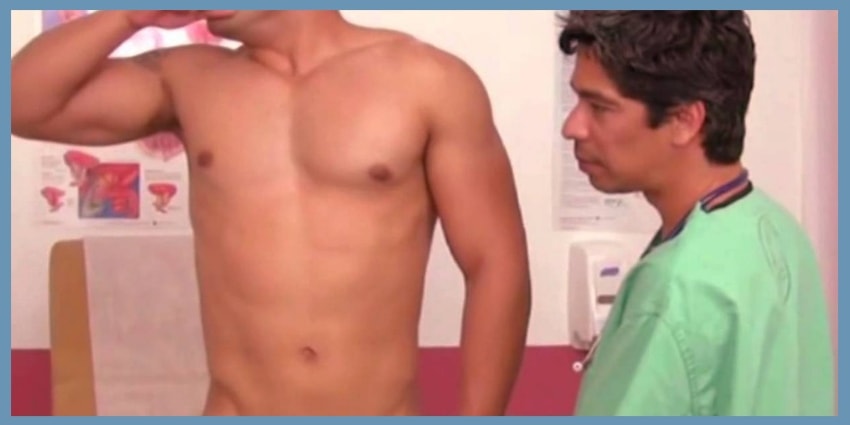
Surgical Treatment - Steps under Inguinal Hernia Surgery
Hernia repair surgery is the rectification of the defect in the hernia muscle. The weak or torn hernia muscle which has pushed the internal abdominal part outside is repaired in any hernia repair surgery. There are two approaches to repairing the hernia. One type of Hernia Surgery is called Herniorrhaphy and the other type is called the Hernioplasty. The most common Hernia Repair Surgery employed these days is Hernioplasty.
Hernioplasty Surgery - Hernia Repair Surgery
Hernioplasty, a type of hernia surgery is done both by open and the latest laparoscopic method. In this method too, the hernia surgeon first places the internal abdominal part in its right position. It should be noted that the only treatment available for an inguinal hernia is inguinal hernia surgery.
Hernia repair surgery is done by Laparoscopic surgery technique where the Hernia Surgeon or the GI surgeon makes few keyhole incisions on the abdomen.
Through one of these incisions, a camera is inserted to get a clear view of the hernia present.
The hernia surgeon then places the tangled abdominal tissues or intestine in its original place.
After that the hernia surgeon uses a synthetic mesh to cover the torn hernia muscle. Then hernia mesh is inserted and is placed on the breach and is fixed to the hernia opening. This mesh is stitched to the tissues around near the torn region.
A hernia mesh effectively holds the internal abdominal parts intact. Since there is no tension created, this surgery is referred to as Tension-free Hernia Repair Surgery.
If a hernia present is strangulated, the hernia surgeon removes the part of the intestine that has developed gangrene. The hernia surgeon then cleans the abdomen thoroughly for any leaked matters and then sutures the healthy part of the intestine together. After this, the surgeon proceeds to close the laparoscopic holes present with sutures.
Tension Repair - The Old Hernia Repair Surgery Method
Herniorrhaphy Surgery
This is a relatively older method of Hernia Surgery. An incision is made in the groin area and after that, the internal abdominal parts that have breached the hernia wall are placed in the proper place. Then the hernia surgeon proceeds to repair the hernia tear by stitching the torn parts together. Since the stitch creates a tension, this hernia repair surgery type is also called Tension Repair. This surgery is done by conventional open method.
Generally, surgeons do not prefer this method of Hernia surgery any longer due to the following reasons
More pain and discomfort to the patients.
Longer recovery period reported.
The recurrence of a hernia is higher in this method.
Advantages of Hernioplasty over Herniorrhaphy
Less pain and discomfort.
The recurrence of a hernia is extremely low.
Less difficulty in suturing the mesh.
Hernia Surgery in Chennai at Springfield Wellness Centre
Dr Maran is an experienced hernia surgeon in Chennai who has performed more than 2000 inguinal hernia repair surgery in India. He says that though most of the hernia surgeons, including him, prefer to use Hernioplasty surgery technique, at times, albeit rarely, few patients may need tension-repair technique because the hernia mesh would have failed them. Also, when there are instances where a hernia would be strangulated and would be infected hernia mesh is not used because the infection may cause the hernia mesh to fail. Hence during such circumstances, Herniorrhaphy method of Hernia Surgery is preferred over Hernioplasty.
Complications of Inguinal Hernia
Hernia Repair surgery is one of the common hernia surgery performed these days. They happen by thousands every year throughout India. Despite this many do not perform Hernia surgery due to reasons like fearing a surgery, postponing the surgery for many reasons like a financial shortage, poor diagnosis (happens mostly in rare hernia cases), etc. However, it may be noted that not getting your Hernia surgery done it can lead to other complications which are sometimes life-threatening too.
Inflammation of the intestine part that is caught in the hernia sac.
Incarceration of the part of a hernia that has been trapped in the hernia sac. When the contents of the trapped intestine part cannot move then a severe bowel obstruction happens which is termed as incarceration. This is the first thing that can happen if a part of the intestine gets trapped in the hernia of the abdominal wall. Vomiting, nausea and severe pain can be felt. Gas cannot be passed and it is extremely uncomfortable.
Strangulation happens after incarceration. The incarcerated intestine gets tangled and the bowel in the region swells. The swelled area inhibits the passage of intestine contents and as a result, severe vomiting and pain may occur. This swelling leads to a cut off in the blood supply and as result gangrene can develop. It is said that strangulation can develop in as less than 6 hours after incarceration. Gangrene can lead to nasty medical emergencies. The intestinal tissues in the strangulated area become dead and as a result, many toxins begin to be released into the bloodstream through the very digestive system. This has the potential to develop into septicemia (septic condition) and can lead to death if not attended to as a medical emergency.
Signs and Symptoms of a Complicated or Incarcerated Hernia
The intensity of pain might increase in the groin area and can be unbearable calling for immediate attention.
The hernia bulge in the groin may be pink or red in color.
Fever, nausea or vomiting.
Difficulty in passing motion.
Dr Maran on Hernia Complications
Dr Maran is an experienced hernia surgeon in India having a track record of performing more than 2000 inguinal hernia repair surgery in India. In his opinion, it is not worth taking any risk postponing the inguinal hernia surgery. He strongly opines that an emergency can not only make the hernia surgery complicated but can also cause death if the strangulation and the subsequent gangrene is not attended to immediately.
Can Hernia Recur or Re-occur?
When Hernia occurs for the second time after a Hernia Repair surgery, it is medically termed as Recurrent Hernia or Hernia Recurrence. So what causes Recurrent Hernia? There are a host of reasons that can cause Hernia to recur.
Hernia Recurrence Causes – General Reasons
If you are a smoker, the chances of Hernia recurrence is high.
If you are suffering from Chronic Obstructive Pulmonary Disease (COPD), or having chronic cough where you strain more, the chances of hernia recurrence is very high.
If you are obese and unable to control your weight.
Doing strenuous activity too early after the first hernia repair surgery.
Carrying and lifting weights without following proper technique can lead to hernia recurrence.
Use of steroids.
In most of the above cases, the hernia mesh that has been placed during the Hernia repair surgery is severely strained and hence the hernia mesh may move out of its intended position. So Hernia recurrence occurs. It is worth mentioning that even the best quality hernia mesh can slip from its original position for the above reasons which are not faults of the Hernia surgeon or the surgical procedures.
Hernia Recurrence Causes –Reasons from Surgery Itself
Not using a mesh for repairing a hernia in the first attempt – In most cases, Hernia surgeons evaluate a hernia before deciding to use mesh. Since nowadays mesh are mostly used, this reason does not contribute anymore.
A hernia mesh is not enough to cover the breach – Sometimes the mesh placed in the Hernia Surgery may not be large enough to cover the breach. But the advancement in CT and scanning procedures have indeed minimized this scenario.
The Hernia meshes not getting fixed solidly – Sometimes this can happen if hernia meshes are not of good quality. That is the reason good and experienced Hernia surgeons do not compromise on the quality of the hernia mesh used.
Rejection of Hernia Mesh – Since Hernia mesh is a foreign body anyways, rarely the body reacts. This is not often as the advancement in medical science has ensured this to be minimized.
Infection in the early days of Surgery – If the mesh gets infected or the surgical wound gets infected for various reasons like diabetes or the surgery itself is done as an emergency procedure for obstructed hernia, there is every chance of infection.
Dr Maran, the Top Hernia Surgeon in Chennai on Hernia Recurrence
Hernia Recurrence is not uncommon. It can happen due to any of the above reasons. When a hernia has recurred we need to keep in mind that hernia repair surgery is indeed challenging and the chances of multiple recurrences are also high. So if the Hernia surgeon insists that he would use only quality hernia mesh, you need to be assured that your Hernia surgeon is doing his best for your hernia repair. To avoid or to minimize the recurrence get the hernia surgery done in the early stage and follow the Hernia surgeons' advice strictly.

